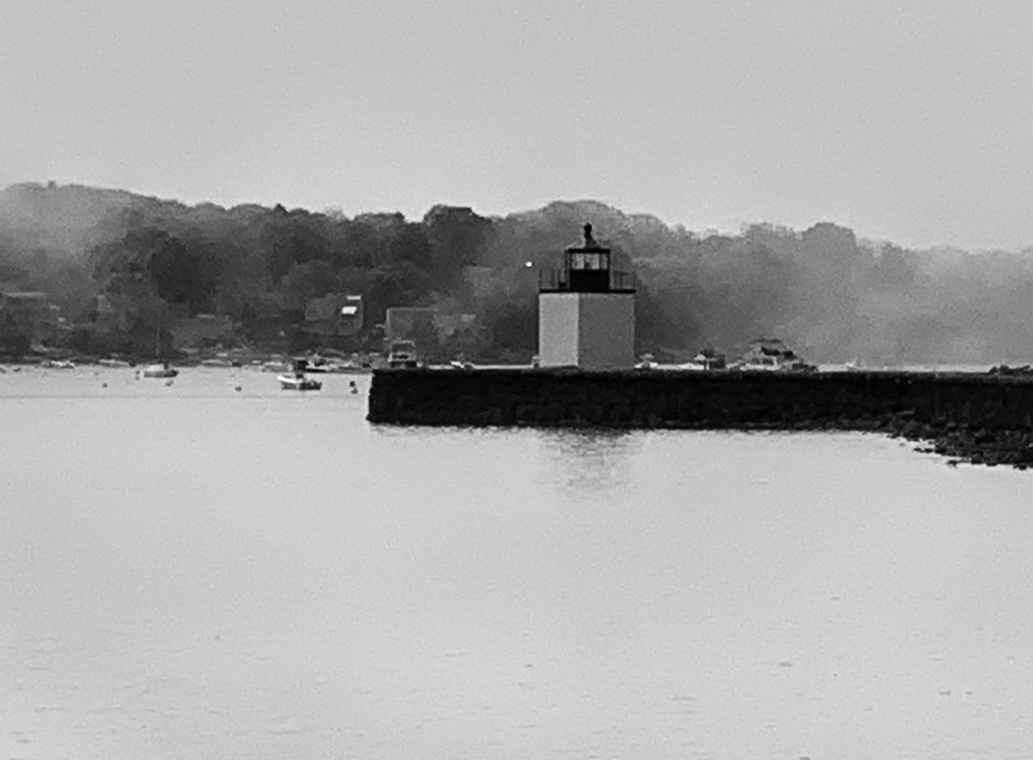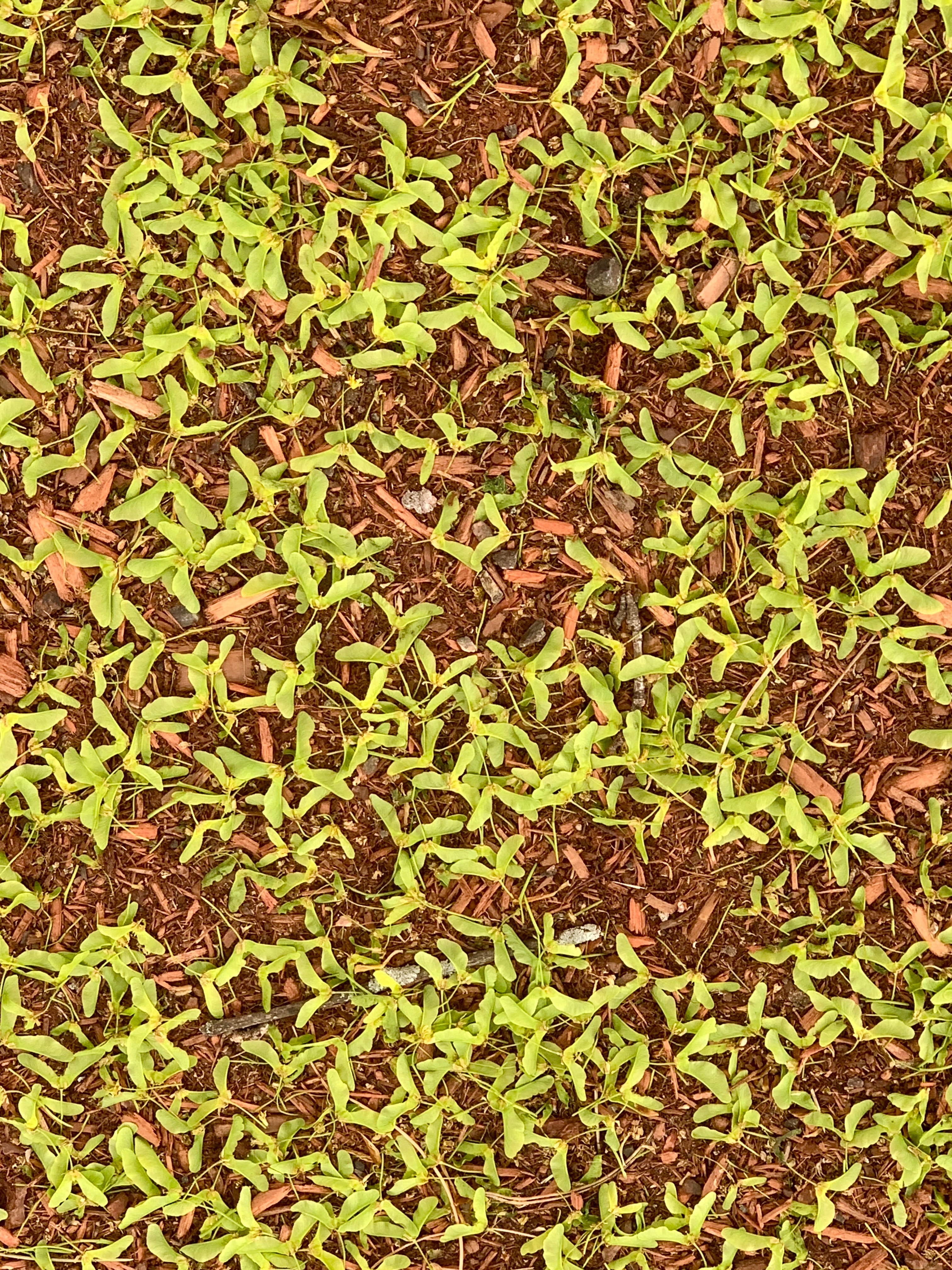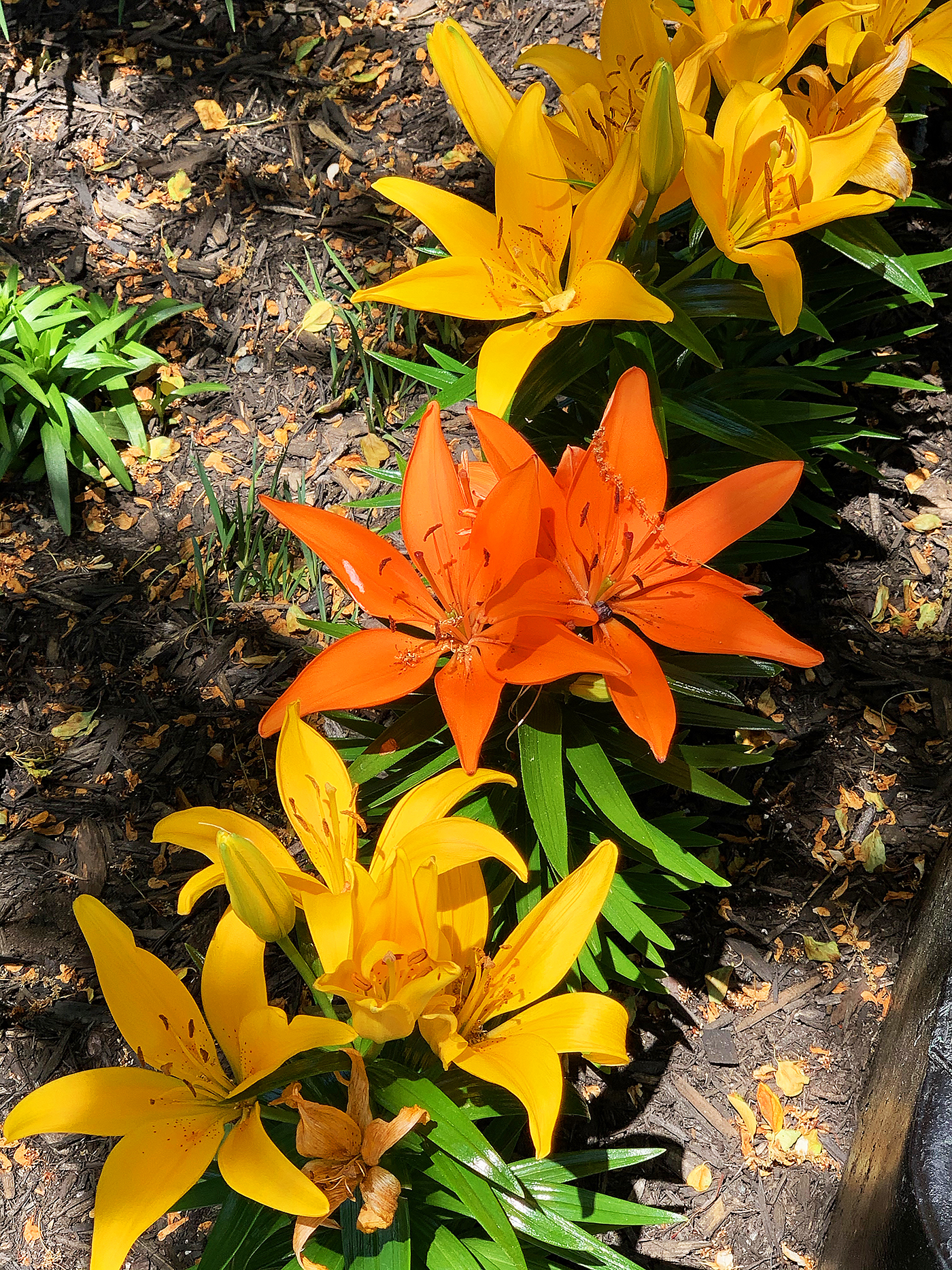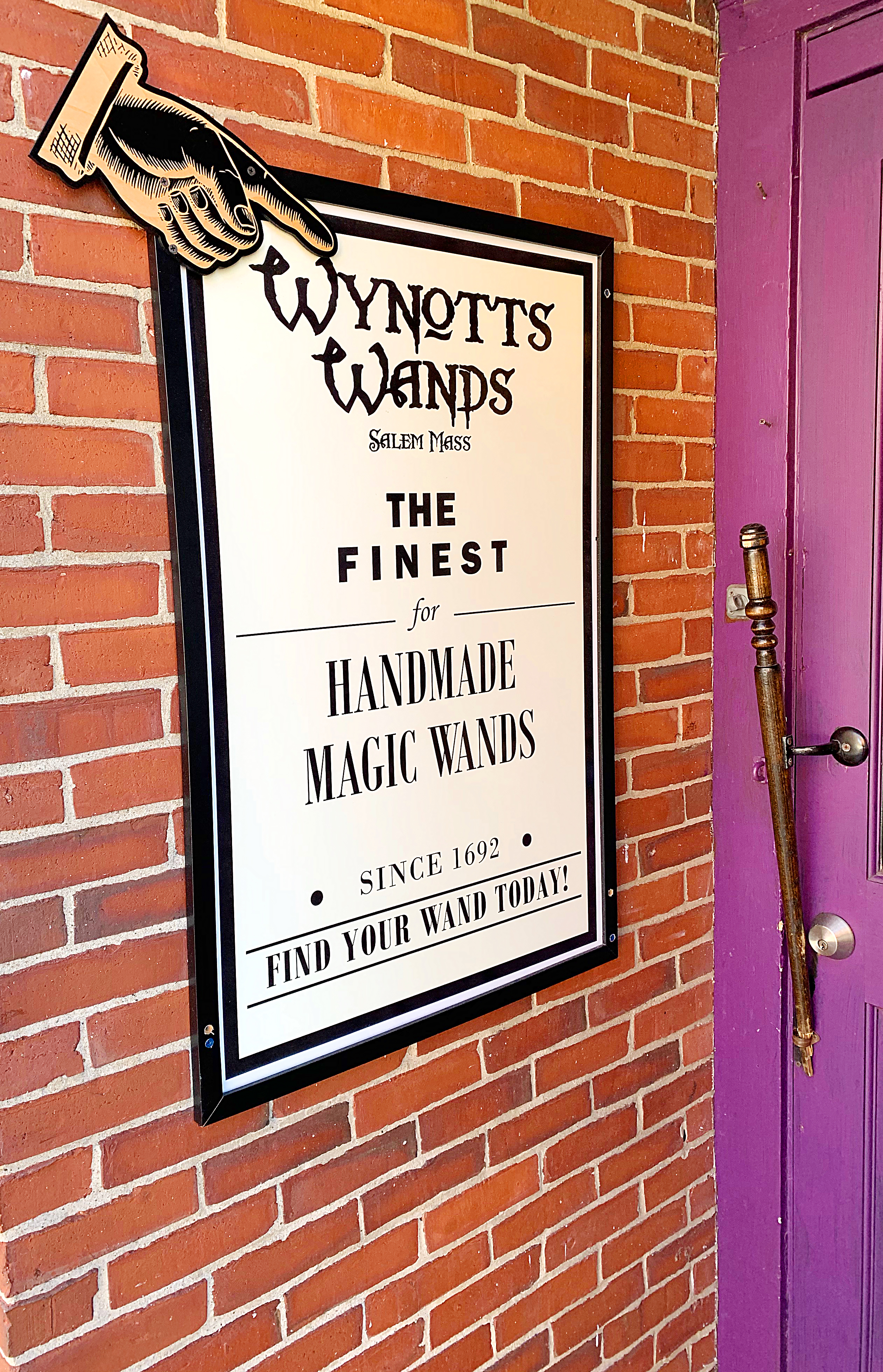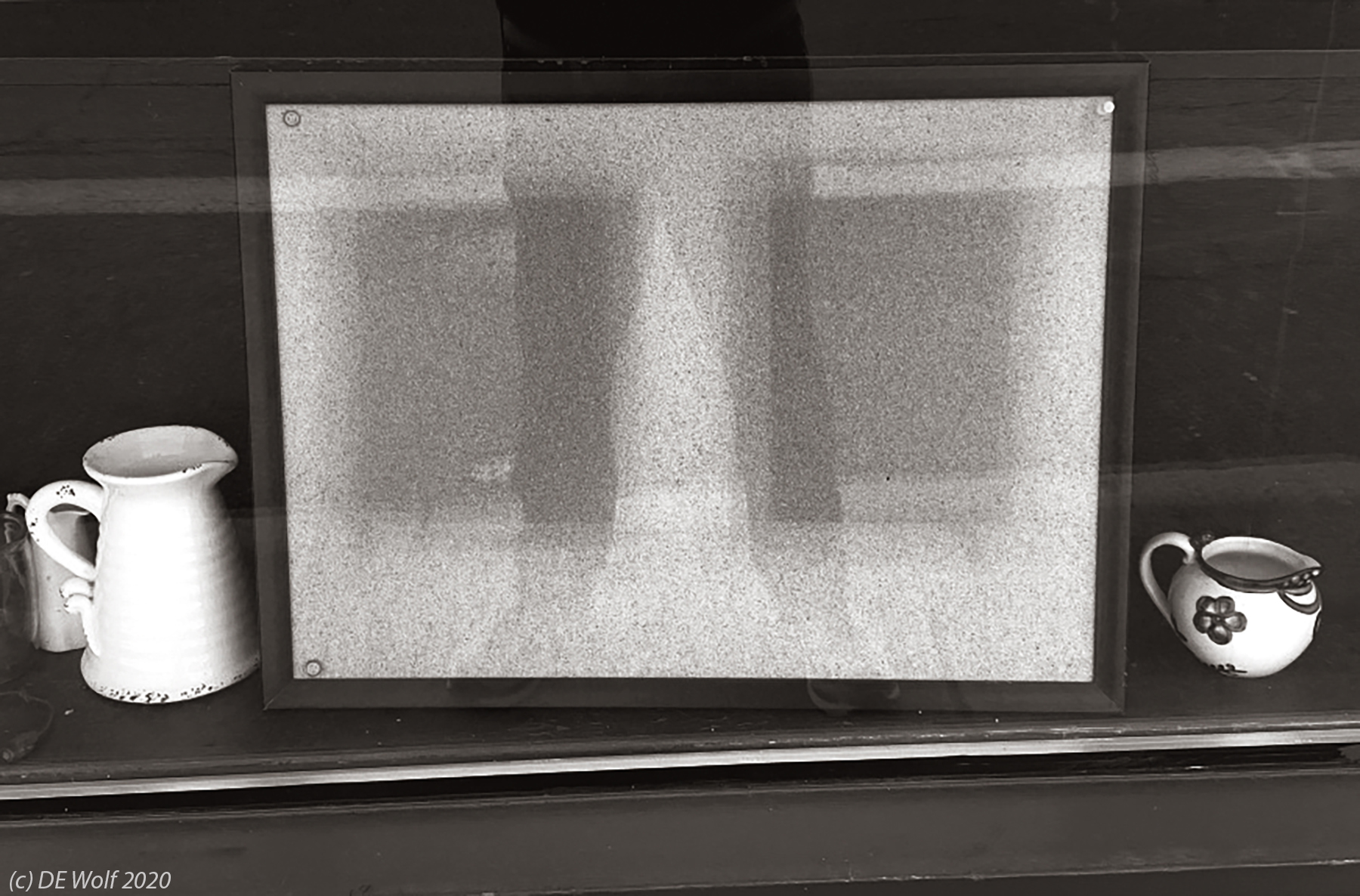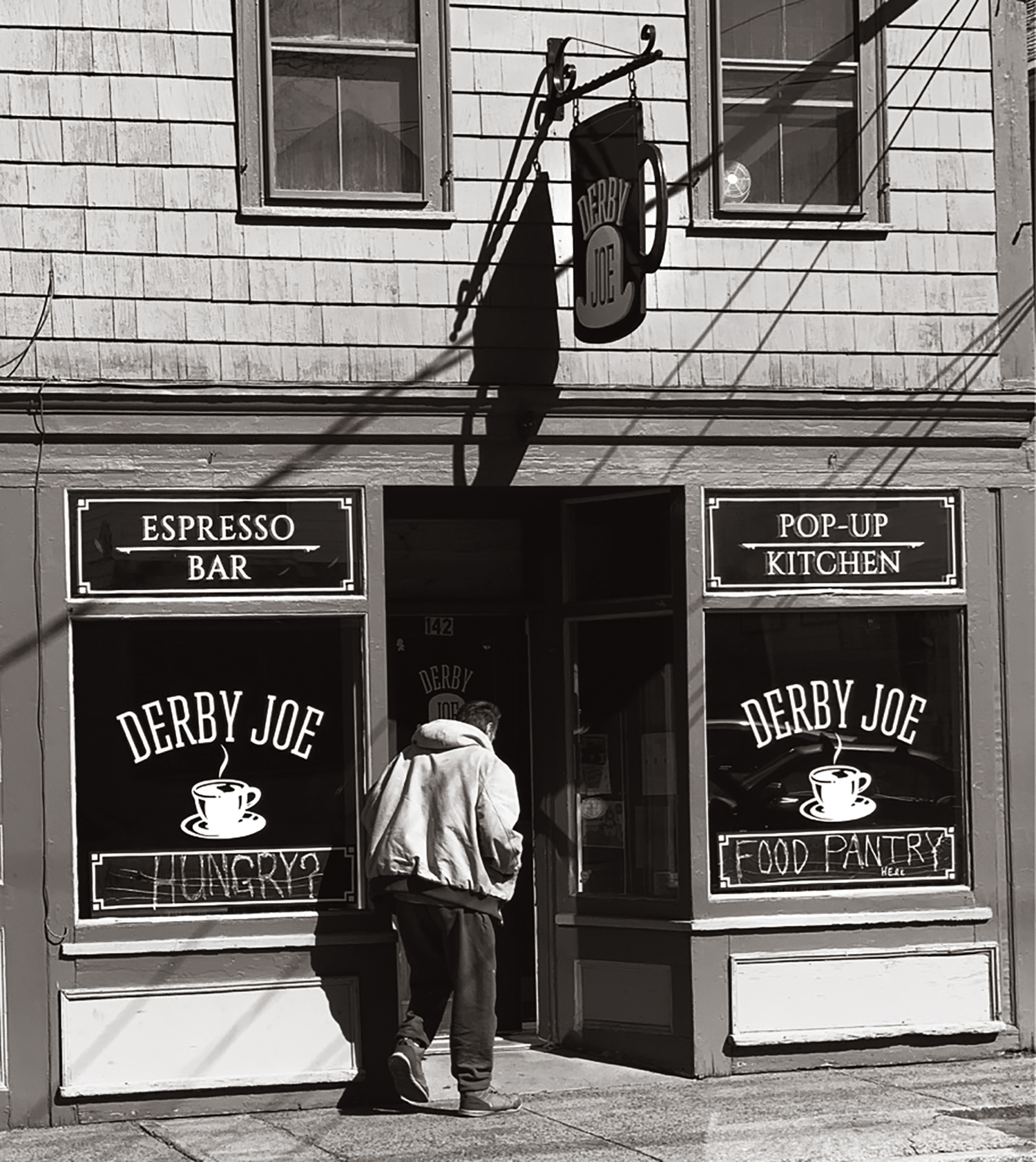They other morning Salem Harbor was filled with fog and I took the image of Figure 1 of the Derby Light. The quality of the scene reminded me of the recent exhibit at the Peabody Essex Museum of John Thomson’s stunning nineteenth century carbon prints of China. It is hard to remember when the museum, one of Salem’s gems, was still open. I am happy to report that I have seen signs that following Governor Baker’s plan it will reopen soon, see Figure 2. In particular is the saturation of the sky caused by the ultraviolet sensitivity of the wet collodion emulsions. Such a tour d’force to produce. And you will note that often Thomson would paint in the subtle hint of clouds. Perhaps this image of the light house belies the fundamental fogginess of the state of our nation.Although in some sense things seem crystal clear.
Maple helicopters in the season of chartreuse
“When April winds Grew soft, the maple burst into a flush; Of scarlet flowers. The tulip tree, high up, Opened in airs of June her multitude; Of golden chalices to humming-birds; And silken-wing’d insects of the sky.”
William Cullen Bryant
Well, it is almost June and the season of chartreuse is just about over, The maples flowered for a very long time this year, timid against the viral threat perhaps. Now they have gone to seed, producing thousands of little green maple helicopters. These so delight all children and the children in all of us. I took Figure 1 the other morning. There was just the right confluence of maple and mulch to produce a mini-field of these delicate fliers.
A Memorial Day like no other
T
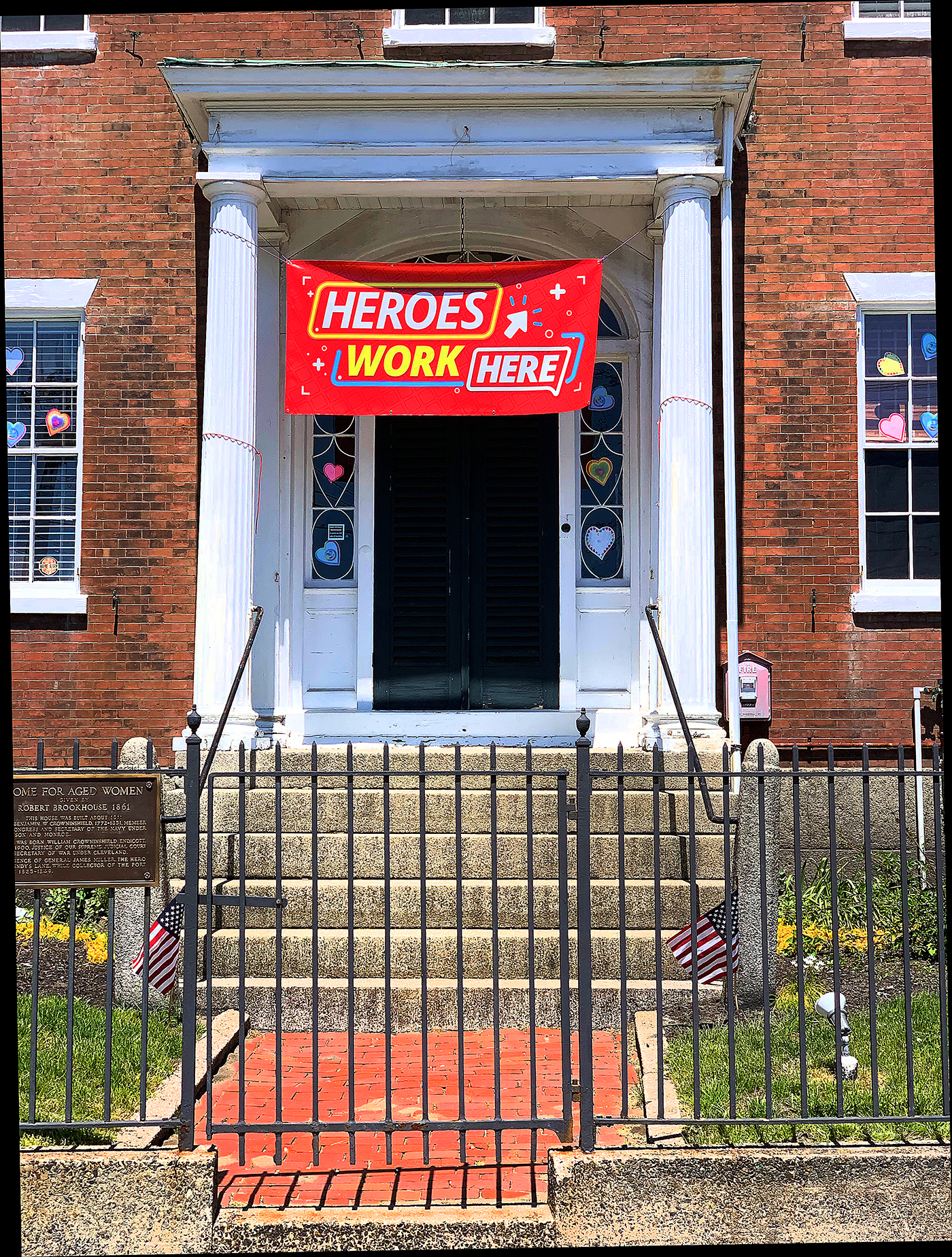
Figure 1 – The Brookhouse Home for Aged Women, Salem, MA, Memorial Day in the time of the COVID Isolation 2020. (c) DE Wolf 2020
Today is Memorial Day in the United States, and we pause to remember the heroes of wars past and present. On this Memorial Day we also remember the heroes of our war against the COVID-19 virus. We honor and remember them and we rededicate ourselves to truth, reason, science, and democracy. Come November we will be in the fight of our generation.
The image of Figure 1 is of Brookhouse Home for Aged Women in Salem, Massachusetts. Brookhouse Home has stood on the corner of Derby and Orange streets, right next to the Custom House, since 1861, The Brookhouse has served as a haven for elderly women in need of housing and care for a century and a half. It was originally the property of Salem shipping tradesman Benjamin W. Crowninshield (1777-1811). It was purchased by Robert Brookhouse in 1854. Brookhouse, who eventually donated it to the Association for the Relief of Aged and Destitute Women in Salem.
“In Flanders fields the poppies blow
Between the crosses, row on row
That mark our place; and in the sky
The larks, still bravely singing, fly
Scarce heard amid the guns below
We are the Dead. Short days ago
We lived, felt dawn saw sunset glow
Loved and were loved, and now we lie
In Flanders fields
Take up our quarrel with the foe;
To you, from falling hands we throw
The torch; be yours to hold it high
If ye break faith with us who die
We shall not sleep, though poppies grow
In Flanders fields.”
―
‘O Tiger-lily,’ said Alice… ‘I wish you could talk!’
Ok, it is the Sunday before Memorial Day in the United States. So I am going to take a breath and think about Lilies. Of course, there are many great lily quotes. But I am going to focus on the the fact that skies are bluer and the sunshine brighter due to the decrease in carbon emissions, due, in turn, to the quarantine and isolation. Climate change deniers take note. Nature is, for a deadly moment, a bit more beautiful. The flowers and Earth might be willing to speak more clearly to us. We are made to hear their song, but are out of practice. In Lewis Carrol’s Through the Looking Glass and What Alice Found there, there is a garden of live flowers.
‘O Tiger-lily,’ said Alice… ‘I wish you could talk!’ ‘We can talk,’ said the Tiger-lily: ‘when there’s anybody worth talking to.”
Adoration of the Virgin
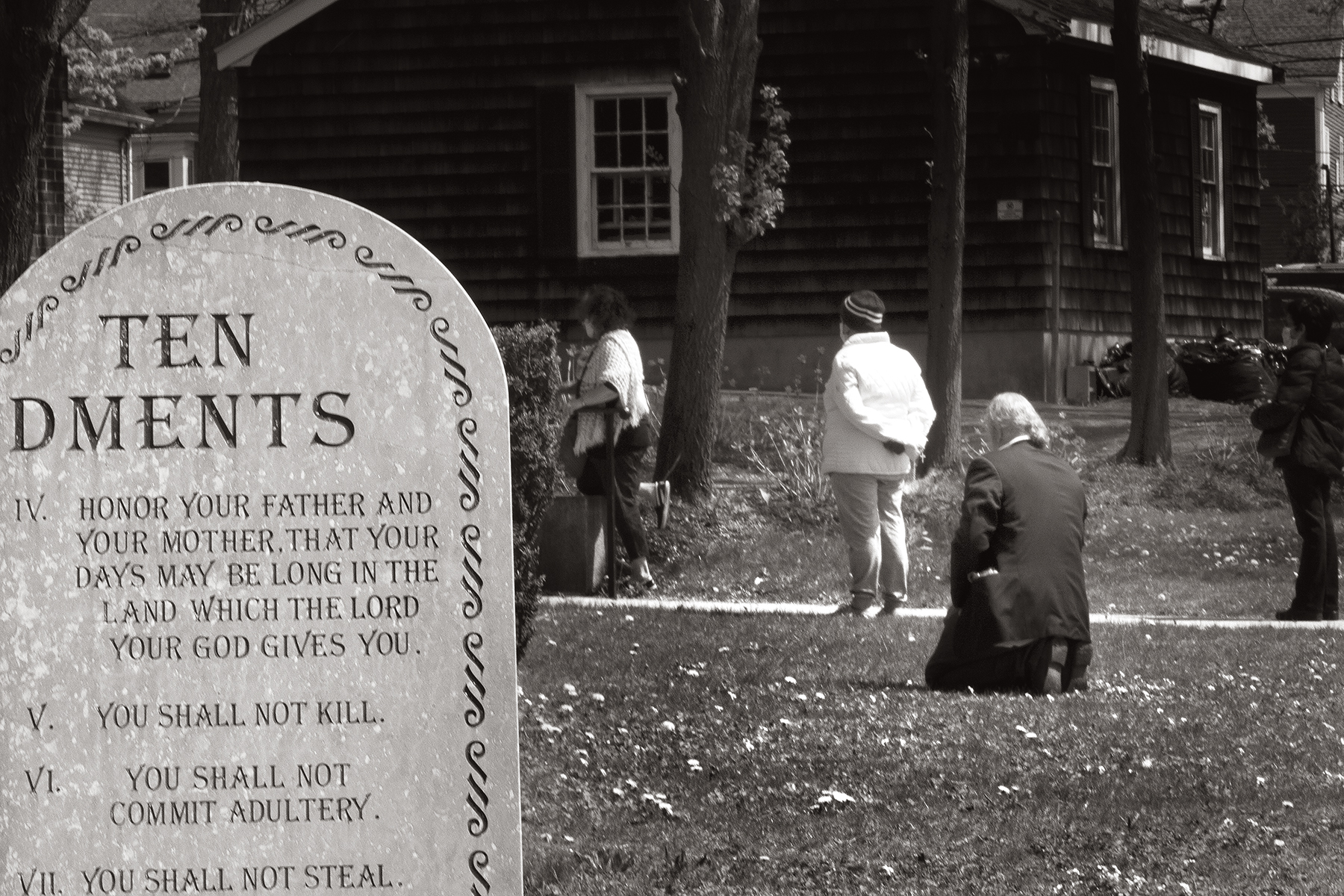
Figure 1 – Adoration of the Virgin, Parishoners gathered for mass before the Immaculate Conception Churd of Mary Adoration of the Apostles Church, Sunday, May 3, 2020. (c) DE Wolf 2020.
A striking and touching moment each Sunday morning, in this time of the first isolation, is the gathering of the faithful in front of Salem’s historic Immaculate Conception Church – Mary, Queen of the Apostles Parish. The church is closed officially, but the doors are flung open wide, and an altar has been placed in the doorway. A small and socially-distanced crowd of masked-parishioners gathers on the lawn. Some like the gentlemen in his Sunday-best fall to their knees.I have been trying to conceive this photograph for weeks, while at the same time not being too intrusive, remaining respectful. This Sunday I got the concept of featuring the Ten Commandment Plaques in the foreground – the foundation of faith. I feel that it is still photographically imperfect. But I do hope that it captures this moment of Sunday hope and adoration.
Becket Street
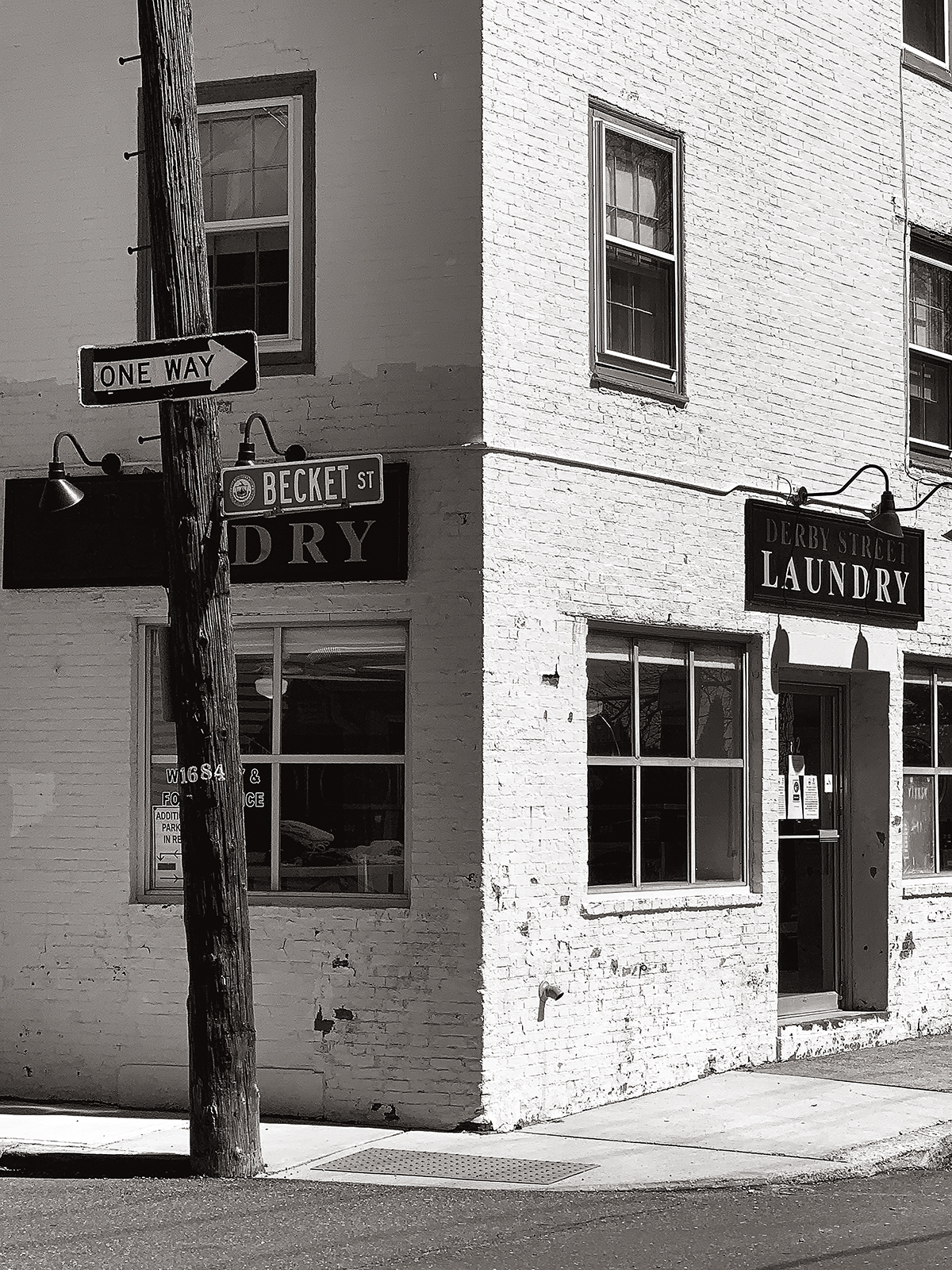
Figure 1 – Derby Street Laundry on the corner of Becket and Derby Streets, Salem, MA. (c) DE Wolf 2020.
We have definitely gotten into a strange new world view, as we wander the streets. They are so deserted, but at the same time we rise to anger whenever we pass a smoke, mask down around his/her neck, puffing away. perhaps they should develop a special mask for such fools, one with a hole in the center for the cigarette!
There is an airy silence in the bright morning light. I see it in black and white, leaning towards the classic duo tone that mimics selenium. In Figure1, we see the Derby Street Laundry at the corner of Salem’s Derby and Becket Streets. The building has certainly seen better days, and true to an old section of an antique town, the streets are bent and warped. This is near the Old Custom’s House and most certainly Nathaniel Hawthorne tread this very path.
“and the third[window] looking across a narrow lane, and along a portion of Derby Street. All three give glimpses of the shops of grocers, block-makers, slop-sellers, and ship-chandlers; around the doors of which are generally to be seen, laughing and gossiping, clusters of old salts, and such other wharf-rats as haunt the Wapping of a seaport.”
Nathaniel Hawthorne, The Customs House
Don’t you just wish you had a magic wand and could wish it all away?
Sunday morning in the time of the isolation
Sunday morning and there are no church bells.
Sunday morning and the streets are deserted.
We are in isolation, self-imposed.
We are in quarantine, self-inflicted.
The word isolation has new meaning.
The word viral, is now a thing of dread.
There are no hugs, they are all virtual.
There are no kisses, only emojis.
Pay-stations mock me, as I trigger them.
Dogs mock me, don’t really understand.
Where are the homeless, more than ignored?
Where are the children, kept now indoors?
I see that the sea is still sparkling.
I see that the crocus now are blooming.
Maples caress the air with crimson buds.
Magnolia blossoms vanish in the wind.
Mergansers still seek seasonal lovers.
Muted swans still dance with their life-long loves.
Spring has come, but there is COVID-19.
Spring is unseen by those in quarantine.
Subtle signs and the wisdom of the Tralfamadorians
As I said in my last post, the signs of the isolation can be subtle yet poignant. On Salem’s once bustling, now lonely, Essex Street is the Olde Main Street Pub. According to the pub’s website it offers “fine Contemporary family dining in a cozy pub-like atmosphere.” The darkness inside betrays uncertainty. Figure 1 is a photograph that I took of the menu board in the window. The Pub is closed and offers no menu. But you can see the bleached shadows of many years of past menus. The physics of light is relentless, and you may wonder just how long it will take for the daylight of our new reality to erase all signs of the past.
It is, perhaps, worth noting. in case some future historian happens to read these words, that we know that this is a transformational moment. Ours is perhaps akin to the uncertainty that Europeans felt during the first World War. We know that the world will never be the same. We do not, however, know, with any precision, how it will change. Some, in arrogance, may suggest that they do know what will happen. But I am reminded of the wisdom of the Tralfamadorians in Kurt Vonnegut’s Slaughter House Five:
‘We know how the Universe ends-‘ said the guide, ‘and Earth has nothing to do with it, except that it gets blown up, too’
For whom the bell tolls
There are three types of people facing the COVID-19 pandemic: those who are inconvenienced by the isolation, those made financially desperate by it, and those who face the full physical brunt and terror of the disease. Needless-to-say the sick suffer the most, and the omnipresent fear of everyone else is to become one of the sick. Such a terrible and stressful time for everyone. It is one that challenges our humanity.
I had thought that signs of the isolation and financial ruin would be subtle and really hard to find. But in fact, that is not truly the case. Signs are everywhere. You just need to look for them. They may at first be subtle to the sight, only to become vivid and horrible when at last you find them
I was walking along Salem’s waterfront thoroughfare, Derby Street, the other morning, when I passed the Derby Joe Cafe. It is a place that is ever familiar. But when I crossed the street to maintain my social distance from another passerby, I spotted two makeshift signs on either side of the entryway. “HUNGRY?” and “FOOD PANTRY.” Embarrassed in the way that people are when they look through and ignore the homeless, I stopped to take the image of Figure 1.
Written now some four centuries ago, and despite the rantings of a senile egomaniac, we are reminded that people are not statistics. They love. They are loved.
“Any man’s death diminishes me, because I am involved in mankind, and therefore never send to know for whom the bells tolls; it tolls for thee.”
― Meditation XVII – Meditation 17

